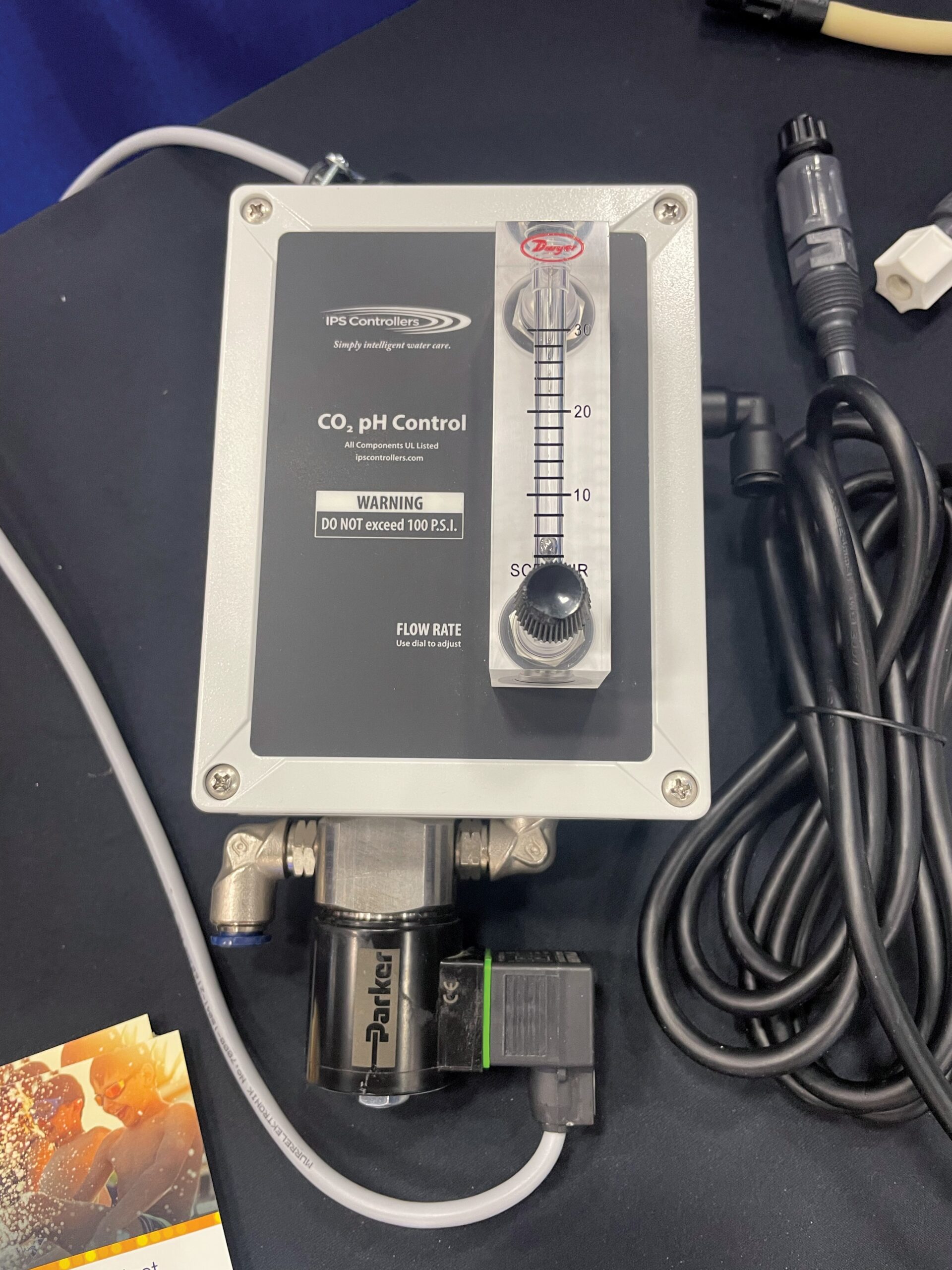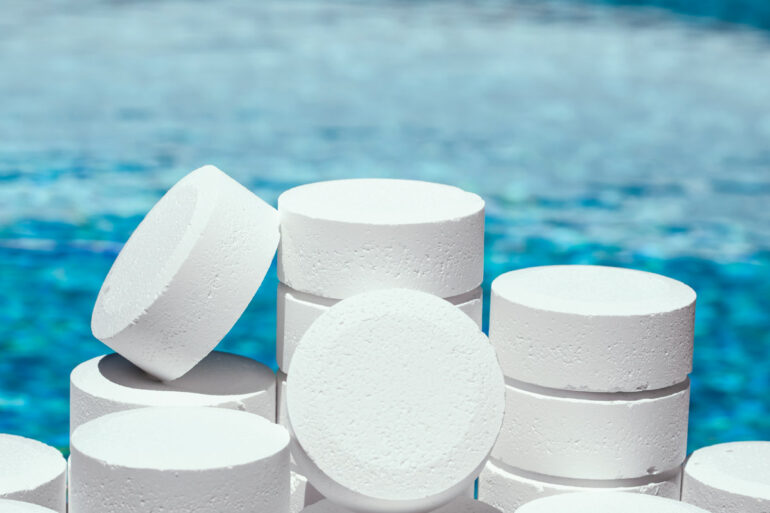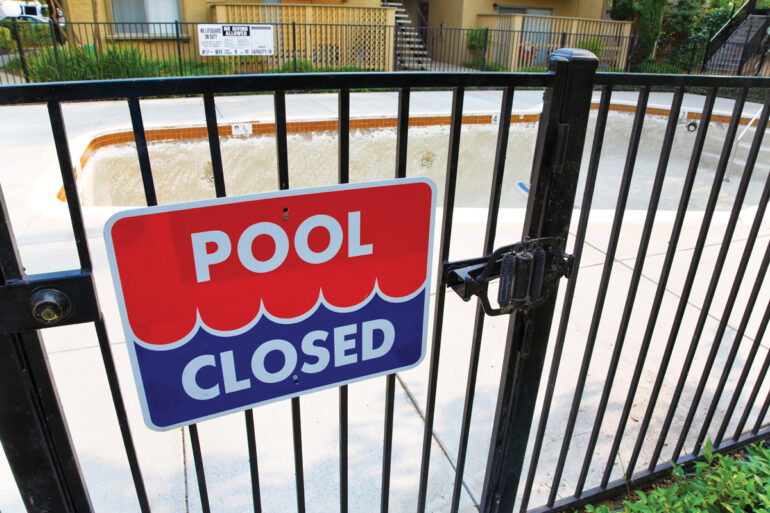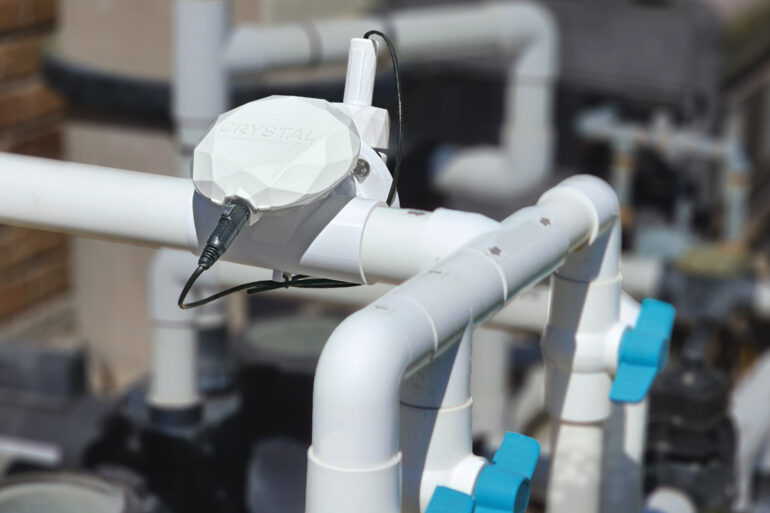Smarter pH Control
How CO2 is transforming pool and spa maintenance for better water quality and safety

Maintaining proper pH levels is essential for ensuring water quality and safety in any pool. To make this process more efficient and effective, IPS Controllers recently developed a CO2-based pH dispensing system for residential and commercial pools, designed to work with a pH or pH/ORP controller.
How the system works
The CO2 pH control system operates similarly to a traditional acid system but uses CO2 instead of muriatic acid.
Dan Woolstenhulme from IPS Controllers explains how the system works: “The controller detects demand and activates the CO2 dispenser by opening a solenoid, similar to how it operates a peristaltic pump for muriatic acid.” He adds that the main difference lies in dosing times, as CO2 is less potent than muriatic acid, though it can depend on the dilution level of the acid. For example, a 4:1 water to acid dilution might result in similar dosing times.
Benefits of using CO2 for pH control
One advantage of using CO2 for pH control is it can maintain total alkalinity more effectively, making it particularly useful in commercial settings.
“It’s especially beneficial in commercial spas where [techs] are constantly fighting low alkalinity issues and having to make adjustments on [nearly] every visit,” Woolstenhulme says.
The system also eliminates risks associated with mixing muriatic acid and chlorine, a safety concern for pool operators.
While CO2 pH control may not immediately deliver cost savings, Woolstenhulme notes it can reduce long-term maintenance costs by preserving total alkalinity and avoiding damage to pool equipment and surfaces.
“To see [the full picture], you’d want to include the benefits of reduced employee time managing that low alkalinity issue,” he says. “You could also consider damaged pool equipment and surfaces from low alkalinity if someone’s not paying attention to it.”
Cost and installation
The cost of CO2 varies depending on the size of the tank. Woolstenhulme explains that filling a 5-pound CO2 tank is almost the same price as filling a 20-pound tank, making larger tanks a more economical option for pool operators.
For those looking to integrate CO2 pH control into existing systems, IPS Controllers’ CO2 device offers compatibility with any chemical automation controller using a simple 110-volt plug. IPS Controllers’ system can also be operated remotely with the IPS-M920 series controllers, offering added convenience.
Growing interest
The use of CO2 for pH control is gaining traction, Woolstenhulme says, particularly in the high-end residential market.
“We’ve been surprised at the interest in both residential and commercial, but it seems like there’s a push for less chemicals on a pool for the residential side,” he says.
Andrew McNamara, owner of Koala Pools LLC, is one of many business owners who have embraced the CO2 system.
“The IPS CO2 system is easy to set up, and the backup and support is awesome,” McNamara says. “We prefer to use CO2 for pH control to avoid the issues associated with corrosive acid fumes and the potential hazards of acid combining with chlorine in an enclosed equipment area.”
To maintain safety, CO2 gas should always be handled with proper precautions, and it’s best stored in a well-ventilated area.
IPS Controllers’ CO2 pH dispensing system presents an alternative to traditional acid-based pH management. As the industry trends toward reduced chemical use, CO2 pH control may become an increasingly popular option for pool operators seeking a safer and more efficient solution.
“The IPS CO2 controller plays a big part in maintaining the ideal water chemistry on our projects,” McNamara says.






